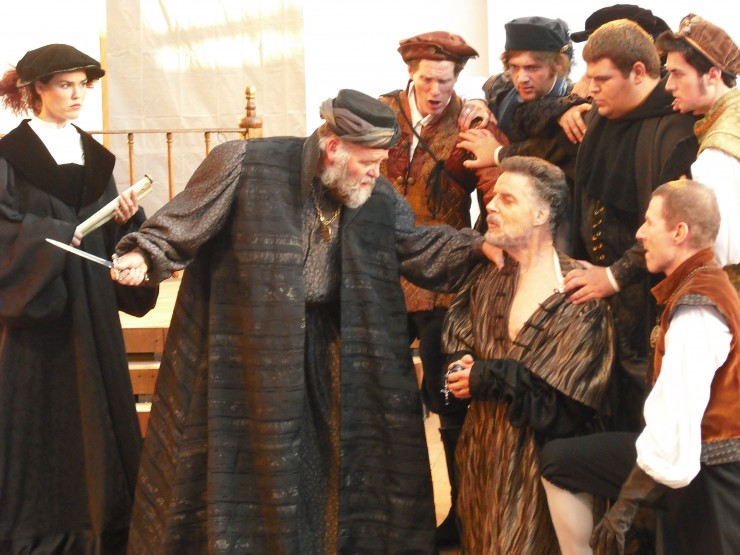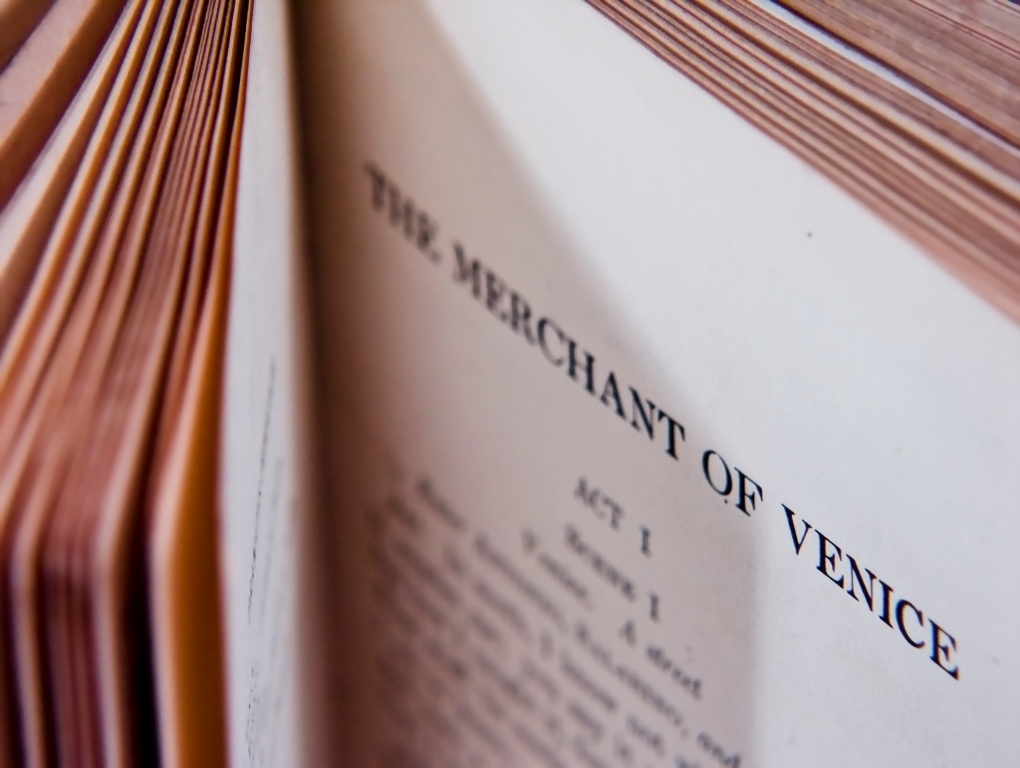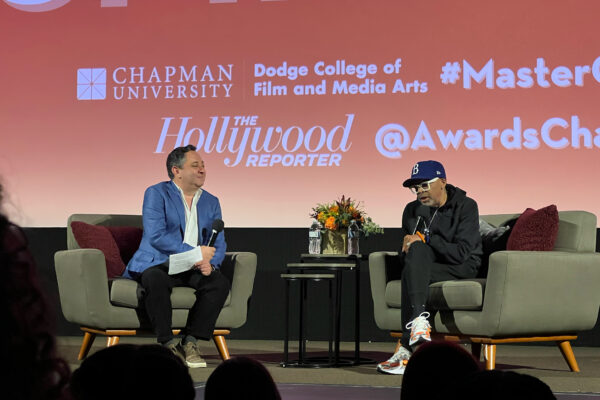Chapman University theatre professor and Shakespeare scholar Thomas Bradac is talking about
The Merchant of Venice
, how the Bard’s troublesome tale is about many things, even though we mostly remember Shylock, the Jewish moneylender seeking payback from a loan-defaulting Christian. Bradac explains how the alternately comic and tragic play has caused plenty of pain in its history, been censored, used as propaganda by the Nazis, labeled as anti-Semitic by many, but heralded by others as a window into the nature of racism.
Then a funny, and maybe not-so-small thing happens. I’m rapidly keyboarding my interview on an iPad. In haste, I typo Shylock to something more like
shylk
. AutoCorrect fixes it perfectly. Even the officious spelling program knows who we’re talking about.

Professor Michael Nehring as Shylock in a 2010 production of ‘The Merchant of Venice.’ “I understand the ‘otherness’ of Shylock,” Nehring says.
Bradac isn’t surprised. That’s how deeply-rooted the character and story of Shylock is in our culture, he says. And it’s why he chose
The Merchant of Venice
for the Department of Theatre’s spring production marking the 400
th
anniversary of Shakespeare’s death. The play opens
Friday, April 15
, with theatre professor Michael Nehring playing Shylock and will be the Department of Theatre’s debut production in the new Marybelle and Paul S. Musco Center for the Arts.
“He has been used to defame Jewry, and used a pejorative through centuries. But if you get right back to the text, his humanity shows,” Bradac says. “He’s been backed into a corner, which makes him into a human being, as opposed to a villain.”
If you go
Merchant of Venice, Friday and Saturday, April 15 and 16, at 7:30 p.m., and Saturdays April 16 and 23 at 2 p.m., Musco Center for the Arts. Tickets $10 to $25. Purchase advance tickets online.
Contemporary productions key in more on Shylock’s lot as an oppressed and ostracized Jew in 16th-century Venice. London’s National Theatre once set the play in a Venice that resembled 1930s Berlin. This summer it will be staged in
Venice’s Jewish ghetto
as part of its commemoration of the 500th anniversary of its founding and with a keen awareness of its legacy.
But many productions throughout history haven’t been staged or received in that spirit. To address and explore some of those issues, a
Tuesday, April 19
, Merchant of Venice Symposium will be held starting at 6:30 p.m. in Waltmar Theatre and feature faculty from the departments of theatre, English and history. (Details below.)
Bradac planned the symposium to foster a greater understanding of a play that moved him when he first read it as a 14-year-old boy and how it remains timely today.
Did You Know?
Many common expressions came to us from Shakespeare. Among them are these two lines from The Merchant of Venice — “All that glitters is not gold” and “Love is blind.”
“I think Shylock’s ‘Hath not a Jew eyes?’ speech was the catalyst for me,” he says, referencing the dramatic monologue Shylock delivers in answer to his persecution. “Those speeches, especially in this day and age, cry out with how un-Christian the Christian characters’ actions are in the play. That to me is reflected in our own age.”
How much sympathy Shakespeare may have intended is uncertain, Bradac says. But he notes that many scholars think the writer might have been conveying a message about his own identity as a Roman Catholic in Elizabethan England.
“Shylock represents the journey of the ‘the other’ within society, those people who were persecuted and denied their rights. I think Shylock is emblematic of that. I find that to be very contemporary,” he says.
Nehring, who has played Shylock in numerous productions, finds that outsider element appealing, too, and says it’s why he’s drawn to the character.
“Being a gay actor, I understand the ‘otherness’ of Shylock,” he says. “I know what it’s like to be a minority or outsider.”
Merchant of Venice Symposium panels on Tuesday, April 19, will include:
Shakespeare, The Merchant of Venice, Renaissance Italy and England, 6:30 p.m.
- Kent Lehnhof, Ph.D., English
- Jocelyn Buckner, Ph.D., Theatre
- Student dramaturges for Merchant of Venice Morgan Green and Katie Neubert.
- Moderator: Thomas Bradac, director for Merchant of Venice
Venice, Jewish Ghetto and Heritage in Europe, the character of Shylock, 7:30 p.m.
- Giulio Ongaro, Ph.D., dean of the College of Performing Arts
- Shira Klein, Ph.D., History
- Michael Nehring, Theatre, who portrays Shylock in the CoPA production
- Moderator: Marilyn Harran, Ph.D., director of the Rodgers Center for Holocaust Studies
Admission is free and open to the public. Light refreshments will be served in the Waltmar Lobby following the panel discussions.





Add comment